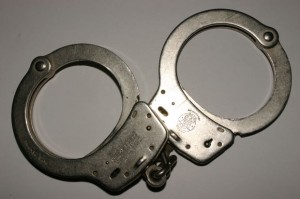Hartford Traffic Deaths Should be a Primary Safety Focus
The elimination of motor vehicle deaths in any city is a tall order. It’s seems almost impossible in a place like New York City. Yet, Mayor Bill de Blasio is demanding just that, ordering police personnel to focus more of their energies on traffic enforcement – as opposed to violent crime reduction and enforcement. 
The strategy has been controversial. It’s not that lowering violent crime isn’t a worthy or important cause. However, de Blasio has a point, particularly when you begin to look at the number of people who suffer as a result of motor vehicle crashes versus those who are victimized by violent crime.
First, our Hartford accident attorneys would point out that the number of Connecticut homicides in 2012 was 143. That’s according to annual uniform crime reporting statistics from the state. Meanwhile, the National Highway Transportation & Safety Administration indicates that the number of traffic fatalities that same year was 220.
That means the number of traffic deaths Connecticut is 54 percent higher than the number of murders.
This was true even though the number of traffic fatalities in this state dropped by 100 from 2011 to 2012. (The number of traffic deaths for the state in 2010 was 224, on par with what we saw again in 2012.) State law enforcement officials were quoted recently as saying that the higher traffic death figure was more in line with what we normally expect to see.
Now let’s explore the number of injuries stemming from traffic crashes. In 2008, state transportation officials report there were more than 36,300 injuries attributed to traffic crashes statewide. That same year, uniform crime figures reveal there were 685 rapes, 4,050 robberies, 6,000 aggravated assaults and 500 arson reports. That brings the total number of victims of violent crime in Connecticut that year to about 11,200. That means the number of traffic accident victims was nearly 2.5 times higher than the number of violent crime victims.
Again, this is not to belittle the suffering that violent crime victims endure. But in solely looking at the impact in terms of sheer volume, it’s seems clear where our resources are most needed.
What de Blasio has proposed is a combination of actions that would ultimately slash the number of traffic fatalities to almost zero. Among those measures:
- Reducing citywide speed limits from 30 miles-per-hour to 25 miles-per-hour;
- Expanding the red-light camera and speed-tracking camera programs;
- Bolstering the presence of traffic-enforcing law officers;
- Placing devices in taxi cabs that would automatically turn off the meter if the driver exceeds the appropriate speed limit.
No similar proposals are pending in Connecticut, but it seems there are a number of areas that we could stand to improve. For starters, the NHTSA reports our statewide in-vehicle restraint use is at 88 percent. There is no reason this shouldn’t be nearer 100 percent. What’s more, fines for those who fail to properly buckle in children are only a maximum of $60. If state legislators place significant value on the lives of our children, this too requires attention.
Beyond that, the percentage of alcohol-related fatalities in Connecticut increased by 13 percent from 2002 to 2011, cited as a factor in 45 percent of traffic deaths in 2011. Authorities need to prioritize this matter immediately with enhanced patrols and more sobriety checkpoints.
A combination of these effort could go a long way in helping us to further drive down the number of traffic deaths.
Contact a Hartford accident attorney today at the Law Offices of Mark E. Salomone & Morelli. Calling 1-800-WIN-WIN-1 for your free case consultation.
Tags: New Haven injury lawyer, New Haven personal injury lawyer, New Haven traffic accident attorney
